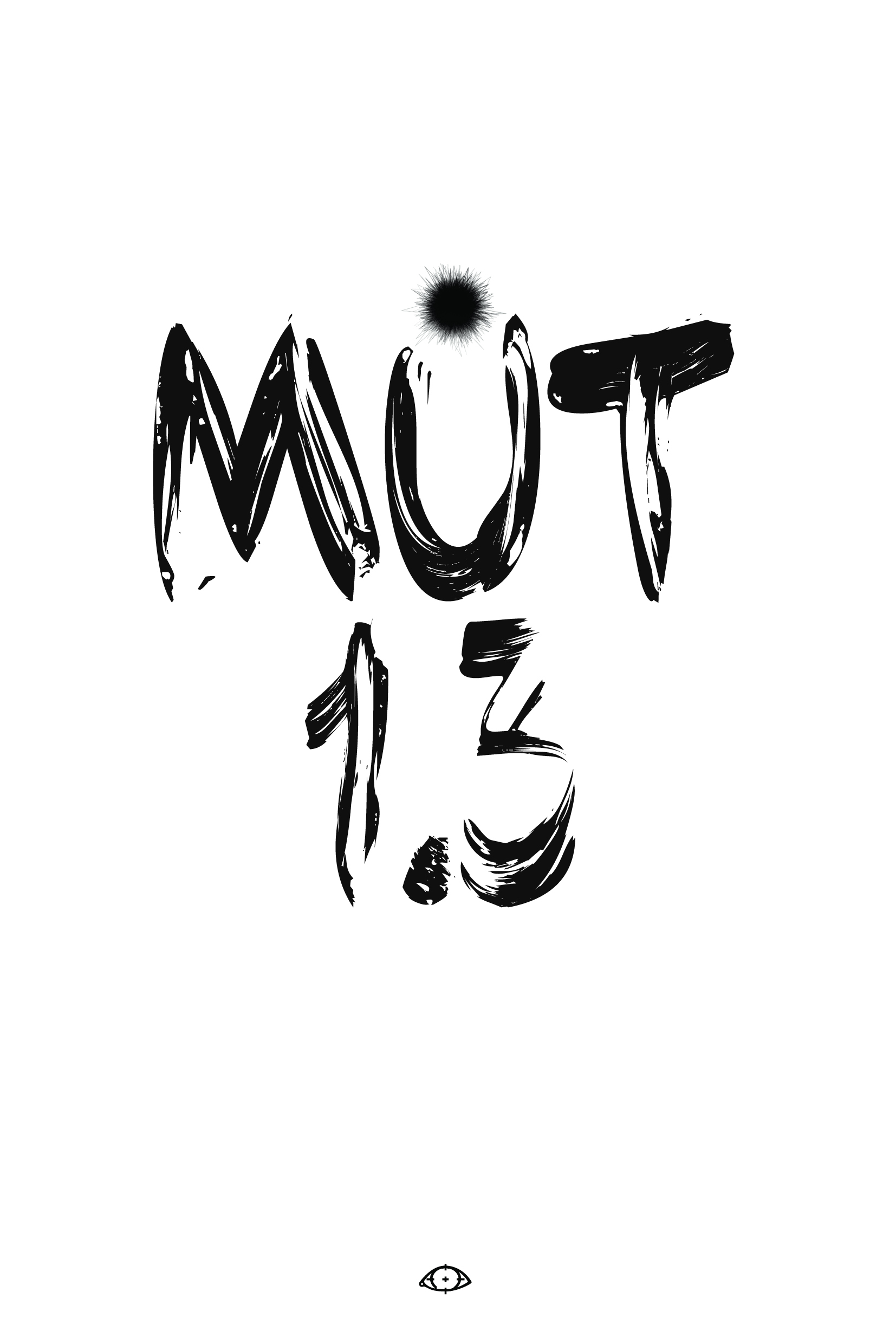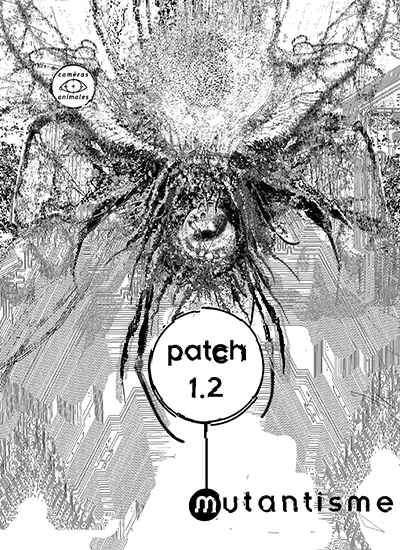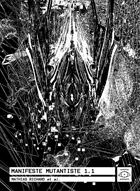- a reblog from wblut.com -
For my FMX13 talk I’d been thinking about a particular question. Why is the generative principle gaining importance? Sure, the tools are out there in ever increasing abundance, but so are the tools for the more traditional approach. And yes, it’s tying nicely with the 3D print revolution. But again so is traditional modelling and design. I got to a point where I have the general shape of an idea, why it’s not just a fad, why it’s more than a fashionable, tech-savvy hipster thing, why it can be a form of art. I didn’t really get to making my point at the presentation, so here’s another go… a silent undercurrent in the evolution of human society.
A silent revolution of narrative
We have long been a people of stories. Narrative told us how the world works and perhaps more importantly, how we were supposed to behave. There was no real reason to look further, the story was both reason and explanation. Things are how they are because that’s how they are. Because the stories were invented and told by us, their perspective is uniquely human. The narrative was recognizable and believable, often involving scaled-up exagerated personae, the Greek big-bearded godly bastards, the West African spider überprankster Anansi, the Christian/Muslim/Jewish let’s-not-go-there… These stories built our society, embedded rules in daily lives, commanded unquestioning respect, gave authority — often to the story teller.
But things happened. One by one our POV biased world views floundered, held up to harsh impersonal light and found to be faulty. Useful models for daily life but empty of deeper truth.
The flat world stretching around us turned out to bend underneath our feet in apparent absurdity. We lost our seat at the center of the universe. Our sun was demoted to a close star. Our glorious Milky Way, just one of many. Cosmologists describe our universe itself as only a bit of froth in a seething multiverse. Not content with tearing down our surroundings, we also target ourselves. Our mind and soul were seized from the aether and confined in soft, squishy and above all, mortal matter. Humanity itself reclassified as a species, endowed with exceptional potential yes, but from a biological point-of-view in no way more evolved than the pets we master, or the pests we exterminate.
But science, that culprit science, didn’t stop there.The sensible but cold mechanical/chemical static universe of the 19th century was further denied to us. Quantum mechanics ripped determinism from the very (sub)atomic fabric of our existence. Thankfully, our cats remain blissfully classical. But even here at our own scale, where at least the classical, deterministic picture still holds, we had to relinquish predictability to the gibbering jaws of chaos theory. (Gibbering might seem too graphic, but chaos theory is single-handedly responsible for al those garishly colored Mandelbrotian horrors inflicted upon the unfortunate non-colorblind.)
Where does that leave us with our stories? For ages we believed that to understand anything we just needed to know it. To predict the future: study the past, measure the present… Establish rules and control the system. And we seem very resistant to letting the stories go. So we kept the stories around. Probably we’re too scared to cast them aside. Perhaps believing, mistakenly, that our society, our laws, our morals are founded on the stories themselves, rather than on the things they were originally meant to allegorize.
But surely, exotic mathematical systems might behave oddly and philosophers delight in academic discussions of principle, but that has no impact on the real world, has it?
A silent revolution of science
The slow change of thought is clearest in science. Let’s take biology. Long considered a sensible science for sensible mustachioed men, great minds cataloguing species and recording behavior, enjoying invigorating rivalries whether skeletized specimen A was a rather large pygmee vole or — obviously — a sickly giant vole. Glass-eyed corpses in the stately natural history museums around the world testify to the titanic efforts of our forefathers. Measuring, labelling, arguing, fixating… growing and pruning the tree of life, a hierarchy of static species.
With Darwin came a revolution of thought, suddenly the tree was no longer a hierarchy but a tracing of common ancestry, portraying relationships between animals. The theory suffered/suffers from many misconceptions, but worst of all, a major point is often overlooked: the fundamental concept of a static species is faulty. In fact one widely held argument against evolution was that species could not arise from other species. A child can not be another species than its parents, the very thought. Serious scientists tried to defend evolution by reconciling it with discrete species: the idea of macro-mutations, rabbit and hare springing from a common ancestor in an extremely unlikely freak event; or the inheritance of accidental traits picked up during life (a stretched out neck or lost tail). But those efforts missed the point, evolution runs into problems with our preconceptions because our preconceptions are wrong. There’s no leafy tree of ancestry, each leaf a species, there’s only a continuüm, evergrowing and dividing branches, each of us a point along the line, but never a leaf. The human narrative had a clear purpose for distinct species, a simplification, a coping mechanism for an incomprehensible complex outside world.
So the useful story turns against us when we take it too far. But that’s science, the world of academics, separated from us by sensible, engineering-type men that cull the useful bits and turn it into technology. These word-games and mathematical constructs wouldn’t affect our daily lives, would they?
A silent revolution of society
I’m guessing that they do. A common thread in our history of understanding is the steady decline of the static, the “state”, and the accompanying increase of the dynamic, the “process”. Of course, state and process are linked, but the state itself doesn’t tell you the process, and the process doens’t always allow you to predict the next state. There’s more to understanding than mere cataloguing and observing. Perhaps even more important, there’s more to control than knowing the current state and knowing the rules.
Take our sorry, global economy. An artifical construct built on sensible rules, yet somehow it turned into an unstable beast, almost actively resisting interference, as unpredictable as the weather. Or our precious democracy, likewise based on sensible, rational rules, but somehow incapable of giving us sustainable leadership — but very good in producing people whose only talent is to get elected. So what is turning our society into its strange current state: seemingly unstable but at the same time resistant to change. Where does the chaos come from? Surely time and scale are a factor in this. But that can’t be all there is to it — that sounds too much like another human story, ageing, the steady decline of everything —
Allow me another guess: feedback. “In olden days” events were scrutinized after they happened. Wars, régime changes, trials, political decisions, these have always been news. The news led to reactions. The reactions lead to changes in future behavior. But all in all the news itself didn’t really affect the event. But we have closed the feedback loops all through society. The mere reporting of events, and the reactions, and the reactions on the reactions,… are so fast and all-pervasive that more often than not the reported event is being changed. The ironic thing is that although the feared quantum randomness turned out not to affect our cat, we nonetheless managed to turn our classical reality into a quantum reality, the observation changing the thing observed. This kind of feedback can lead to stabilization but more often than not leads to chaotic behavior, in a mathematical sense. We still know the rules, but we no longer control the system.





Aucun commentaire:
Enregistrer un commentaire